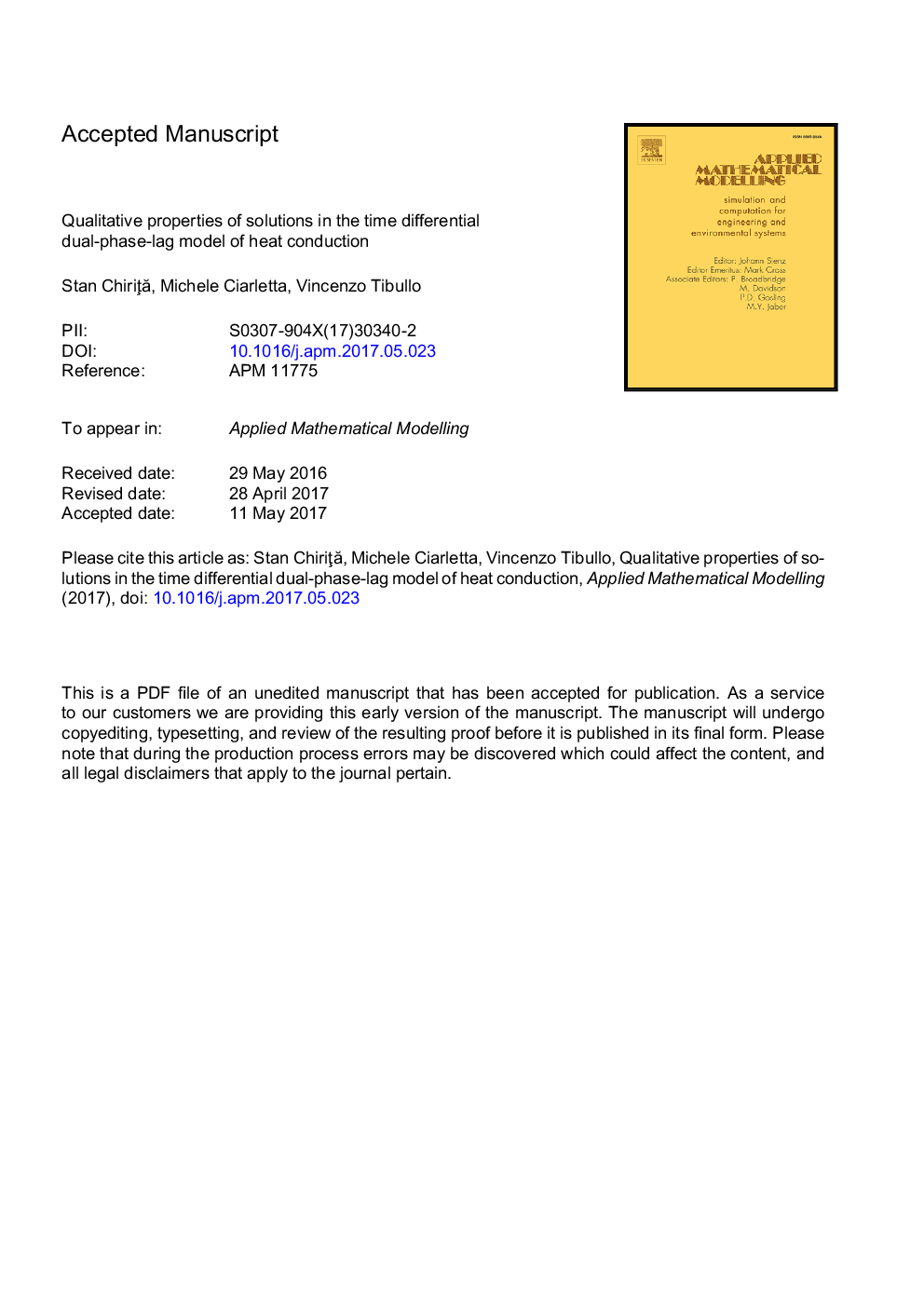| کد مقاله | کد نشریه | سال انتشار | مقاله انگلیسی | نسخه تمام متن |
|---|---|---|---|---|
| 5470693 | 1519383 | 2017 | 24 صفحه PDF | دانلود رایگان |
عنوان انگلیسی مقاله ISI
Qualitative properties of solutions in the time differential dual-phase-lag model of heat conduction
ترجمه فارسی عنوان
خصوصیات کیفی راه حل ها در مدل فاز دوگانه فاز زمان هدایت گرما
دانلود مقاله + سفارش ترجمه
دانلود مقاله ISI انگلیسی
رایگان برای ایرانیان
کلمات کلیدی
مدل هدایت حرارتی دوگانه فاز منحصر به فرد، وابستگی مستمر، رفتار فضایی، راه حل های گذرا، ارتعاشات حالت ایستا،
موضوعات مرتبط
مهندسی و علوم پایه
سایر رشته های مهندسی
مکانیک محاسباتی
چکیده انگلیسی
In this paper we study the time differential dual-phase-lag model of heat conduction incorporating the microstructural interaction effect in the fast-transient process of heat transport. We analyze the influence of the delay times upon some qualitative properties of the solutions of the initial boundary value problems associated to such a model. Thus, the uniqueness results are established under the assumption that the conductivity tensor is positive definite and the delay times Ïq and ÏT vary in the set {0 ⤠Ïq ⤠2ÏT}ââªâ{0 < 2ÏT < Ïq}. For the continuous dependence problem we establish two different estimates. The first one is obtained for the delay times with 0 ⤠Ïq ⤠2ÏT, which agrees with the thermodynamic restrictions on the model in concern, and the solutions are stable. The second estimate is established for the delay times with 0 < 2ÏT < Ïq and it allows the solutions to have an exponential growth in time. The spatial behavior of the transient solutions and the steady-state vibrations is also addressed. For the transient solutions we establish a theorem of influence domain, under the assumption that the delay times are in {0 < Ïq ⤠2ÏT}ââªâ{0 < 2ÏT < Ïq}. While for the amplitude of the harmonic vibrations we obtain an exponential decay estimate of Saint-Venant type, provided the frequency of vibration is lower than a critical value and without any restrictions upon the delay times.
ناشر
Database: Elsevier - ScienceDirect (ساینس دایرکت)
Journal: Applied Mathematical Modelling - Volume 50, October 2017, Pages 380-393
Journal: Applied Mathematical Modelling - Volume 50, October 2017, Pages 380-393
نویسندگان
Stan ChiriÅ£Ä, Michele Ciarletta, Vincenzo Tibullo,
